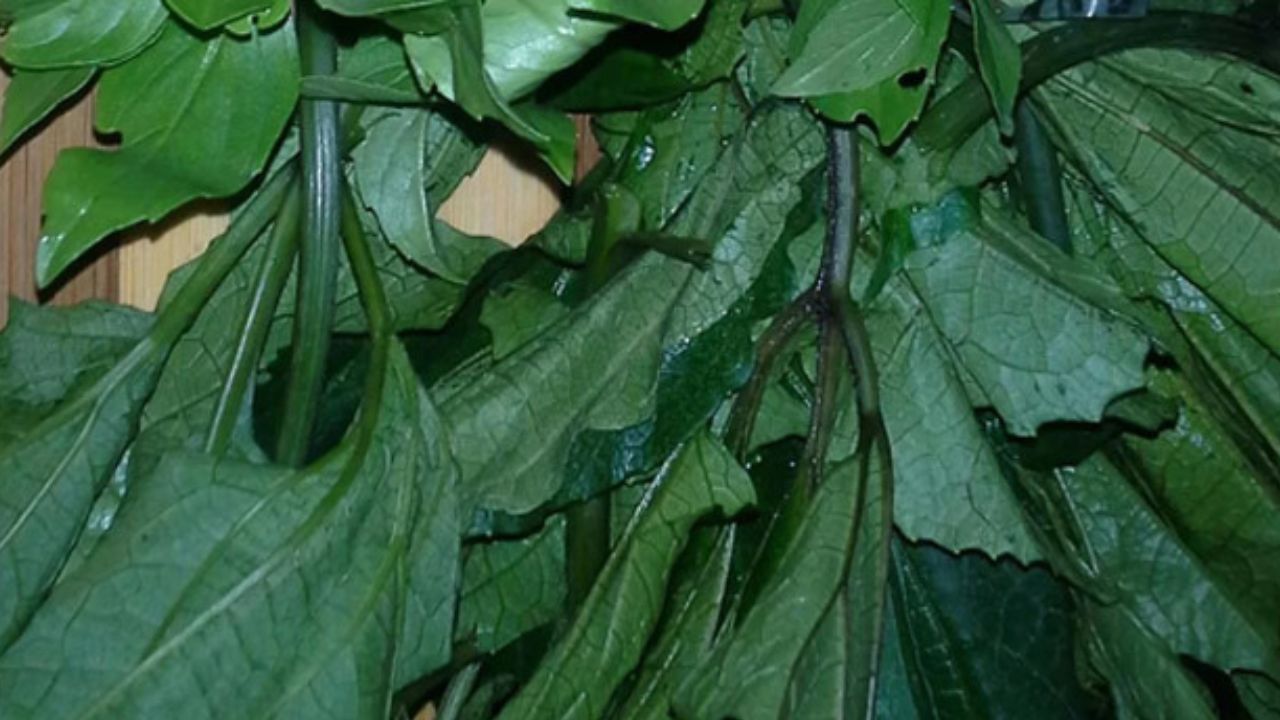
Ugwu (fluted pumpkin) leaves are a popular vegetable in Nigeria. The leaves can be eaten cooked or raw and are a good source of vitamins A, C, and E. Ugwu is also a good source of minerals such as potassium, magnesium, and calcium.
Ugu leaves, also known as pumpkin leaves, are a type of leafy green commonly found in Asian cuisine. They are often used as a vegetable or in soups and stews.
Ugu leaves have a slightly bitter taste and a slightly nutty flavor, which makes them perfect for adding flavor to food. Ugu leaves can be used fresh or dried, and they can be purchased pre-packaged at most grocery stores.
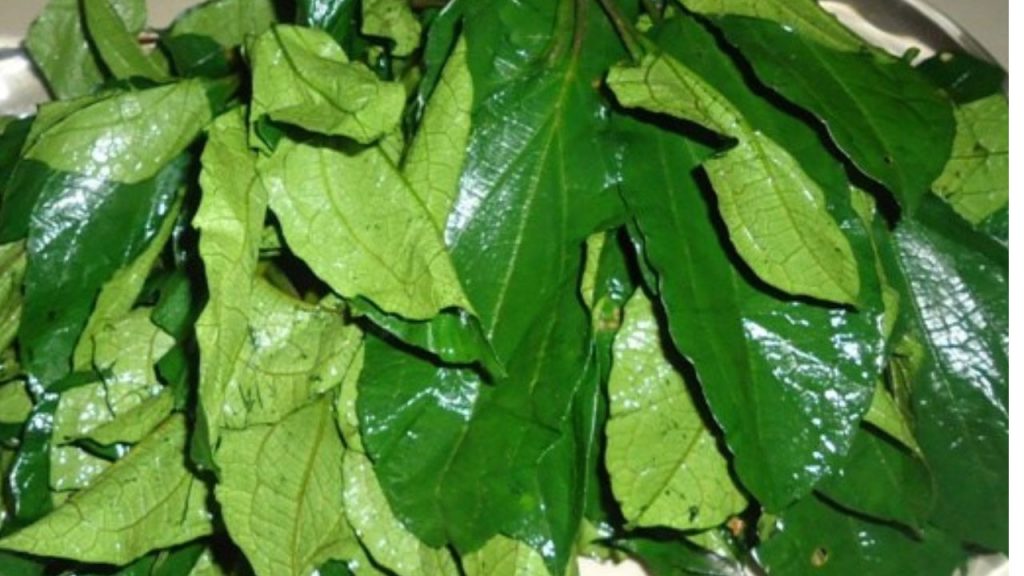
How to Use Pumpkin Leaves in the Kitchen
When October comes around and pumpkin patches start filling up with orange gourds, many people are surprised to learn that the leaves of the pumpkin plant are also edible. Pumpkin leaves can be used in a variety of dishes, both savory and sweet. Here’s how to use them:
- Pick fresh pumpkin leaves from a healthy pumpkin plant. Avoid any leaves that are wilted or spotted.
- Rinse the leaves in cold water and pat them dry with a paper towel.
- Chop the leaves into bite-sized pieces using a sharp knife or kitchen shears.
- Add the chopped leaves to your favorite recipes. They can be cooked like spinach or added raw to salads.
Surprising Health Benefits of Pumpkin Leaves
The pumpkin plant is a vine that grows in tropical and temperate climates. The leaves of the pumpkin plant are often overlooked, but they are packed with nutrients that offer a range of health benefits.
- Pumpkin leaves are high in vitamins A, C, and E, as well as numerous minerals, including magnesium, potassium, and zinc.
- They are also a good source of fiber.
- Pumpkin leaves can be used to treat a variety of health problems.
- They are effective at treating skin conditions such as eczema and psoriasis.
- They can also help to reduce inflammation and pain.
- Pumpkin leaves are also beneficial for the liver and can help to detoxify the body.
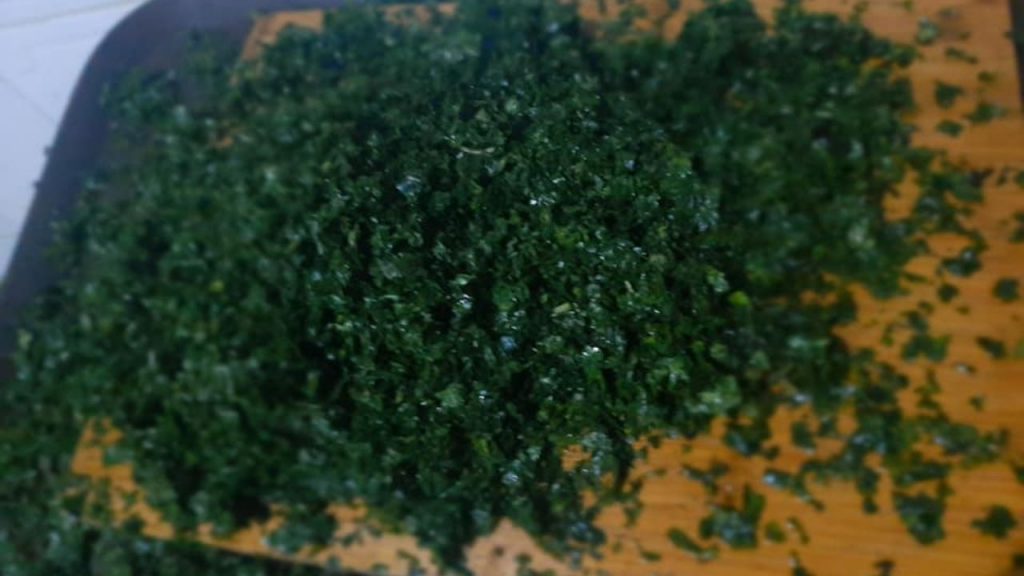
How To Grow Pumpkin Leaves
When growing pumpkins, many people only think about the pumpkin fruit itself. However, the leaves of the pumpkin plant are also edible and provide a number of nutrients. Pumpkin leaves can be eaten raw or cooked and are a good source of Vitamin A, Vitamin C, Iron, and Magnesium.
Here is a guide on how to grow pumpkin leaves:
Pumpkin plants need full sun and plenty of water to thrive. The best time to harvest the leaves is when the plant is young – before it starts producing flowers. To harvest the leaves, simply cut them off close to the stem using a sharp knife or scissors. You can eat the leaves fresh or store them in the fridge for later use.
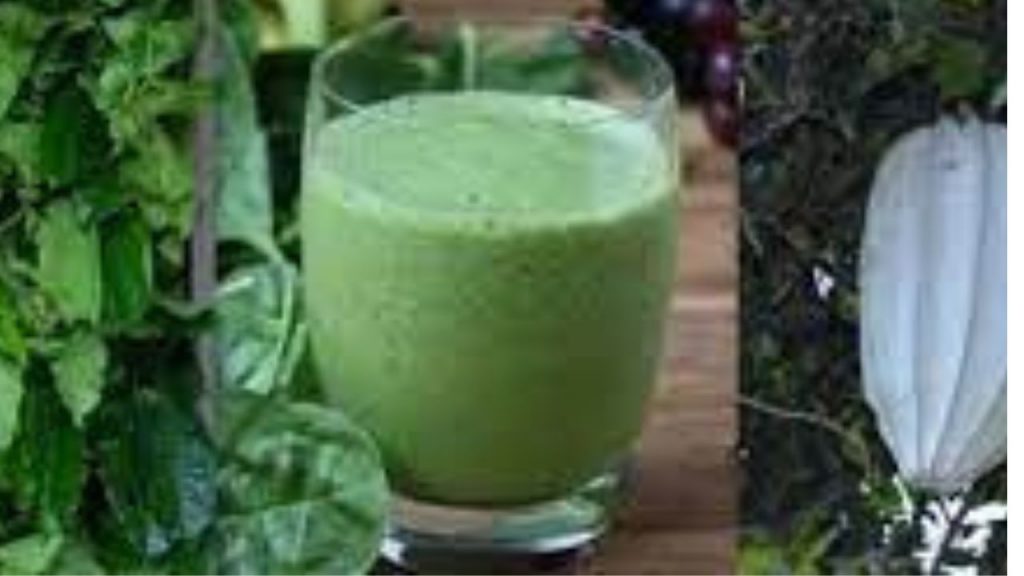
How To Store Pumpkin Leaves
When you’re done carving your pumpkin, don’t pitch the leaves! Here are some helpful tips on how to store them so they’ll stay fresh and green. When it comes to storing ugu leaves, there are a few things that you need to keep in mind.
First, make sure to dry them out completely before storing them. You can do this by either spreading them out in the sun or using a dehydrator.
Once they are dried, store them in an airtight container in a cool, dark place. They should last for several months this way.
10 Nigerian ugu recipes everyone should try
- Edikaikong soup
- Okra and vegetable
- Porridge yam
- Egusi soup
- White rice and vegetable sauce
- Banga stew
- Ogbono soup with pumpkin leaves
- Garnished noodles with ugu leaves
- plantain porridge
- pancake vegetable sandwich
- boiled yam and vegetable sauce
- boiled plantain with ugu sauce
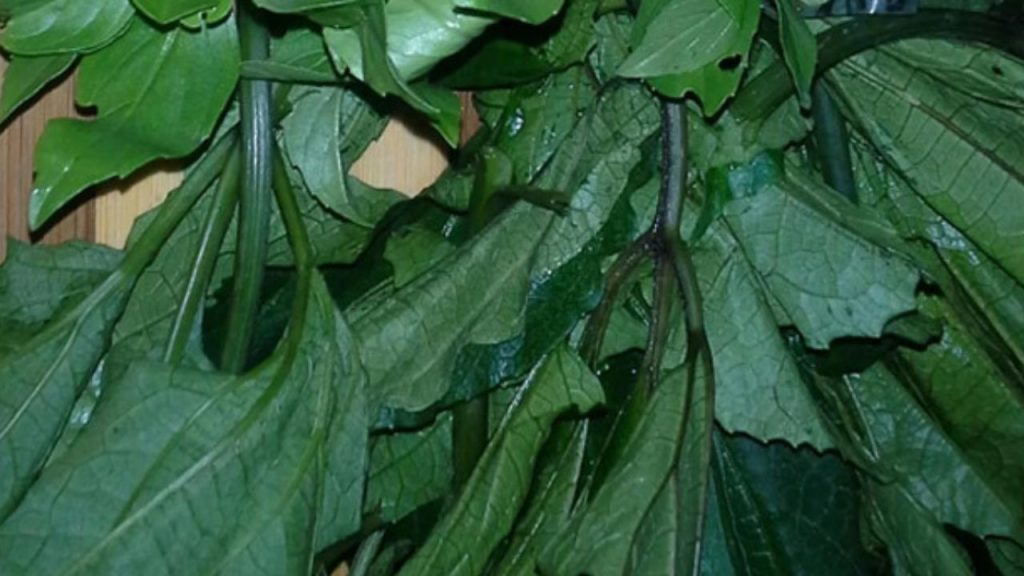
Ugu Leaves And Fertility
UGU leaves have been used as a traditional medicine to treat infertility for centuries. UGU is a leafy green vegetable that is high in antioxidants, vitamins, and minerals.
It is believed that the nutrients in ugu leave help to improve fertility and increase the chance of getting pregnant.
UGU leaves are also said to help balance hormones and reduce stress levels, which can also improve fertility.
Are ugu leaves acidic or alkaline
The ugu plant is a leafy vegetable that is commonly used in Nigerian cuisine. Some people believe that the leaves are acidic, while others believe they are alkaline.
The truth is that ugu leaves are neither acidic nor alkaline- they are neutral. This means that they have no effect on the body’s pH levels. Ugu leaves are a good source of dietary fiber, vitamin C, and potassium.
They can be cooked in a variety of ways, and are enjoyed by many people for their unique flavor.
recipes you might love to try.
- How To Cook Fried Egusi Soup With Tomatoes.
- 30 Most Popular Nigerian Foods That Is Heavenly Tasty 2022
- Nigerian Goatmeat Pepper Soup | Easy Guide.
- Nigerian Bitterleaf Soup Recipe
- Crispy Fried Chicken Drumsticks can be delicious.
- How to make Moin Moin/Moi Moi in tin
- How to prepare Garden egg sauce/ Eggplant sauce
- How To Cook Simple Party Fried Rice
- Cocoyam (Ede – soup thickener and swallow)
- How To Cook Buka Stew
- How To Make Nigerian Moi Moi Roll
- How To Use Stockfish And Its Health Benefits
- How To Cook Achara Soup (Ofe Achara).
- 25 Important Baking Ingredients.
- How to Cook Delicious Achi Soup with a Low Budget
We as well have this
- 24 traditional Ukrainian foods you must try in 2022
- 25 Important Baking Ingredients.
- How To Make Nigeria Pancake | Diet
- 27 Interesting Types of Bread from Around the World
- 35 Most Popular Mexican Foods You Should Try in 2022
- How To Make Quaker Oats | Step By Step Recipe.
- How To Make Pounded Yam Without Lumps ( Step By Step)
- 40 Best South Indian Foods To Try In 2022
- 24 traditional Ukrainian foods you must try in 2023
Frequently Asked Questions
Ugu has many benefits that can help improve overall health. It can help improve digestion, boost immunity, and reduce inflammation. It is packed with essential vitamins and minerals which are beneficial for the body.
Additionally, ugu offers a good source of dietary fibre and antioxidants which may help protect from chronic diseases. All in all, including ugu as part of a balanced diet is beneficial for maintaining good health.
Drinking Ugu leaf water has a number of potential benefits, from providing important vitamins and minerals to improving digestion and reducing inflammation.
It also contains many antioxidants which can help protect the body from oxidative stress and reduce the risk of chronic diseases such as cancer and diabetes.
However, it is important to note that Ugu leaf water should not replace necessary medical treatments or medications. It is essential to speak with a doctor before consuming large amounts of this beverage to ensure safety and well-being.
Pumpkin leaf appears to have a range of potential benefits for kidney health, including antioxidant, anti-inflammatory and diuretic properties. Studies suggest that its consumption may reduce the risk of kidney stones and help improve symptoms of chronic kidney disease.
Although more research is needed to confirm these findings, adding pumpkin leaf to your diet could be a simple way to help support healthy kidneys.
It is important to understand that pumpkin has many benefits, but it is not suitable for everyone. Individuals who are allergic to pumpkin, have an existing digestive disorder, or are on a low-fiber diet should avoid consuming it.
Additionally, diabetics should monitor their blood sugar closely when consuming pumpkin. Pregnant women and children should consult with a healthcare provider before introducing pumpkin into their diets.
Pumpkin leaves have potential as an effective natural remedy for increasing blood. While more research is needed to fully understand the effects of pumpkin leaves on blood, the studies and tests conducted so far suggest a positive effect.
Pumpkin leaves are affordable, easy to find, and relatively safe when used properly, making them an appealing option for those looking to increase their blood levels.
Pumpkin has many potential health benefits that can help to promote a healthy heart, including its ability to reduce inflammation, lower cholesterol levels, and improve circulation.
Eating pumpkin regularly may also have a positive effect on other aspects of your health, such as controlling blood sugar levels and boosting immunity. However, it’s important to note that eating too much pumpkin can lead to unhealthy weight gain and other digestive issues.
Pumpkin leaves does have potential benefits for sperm health. Pumpkin seeds contain a variety of antioxidants, minerals, and vitamins that are beneficial for sperm motility and count.
Eating pumpkin or consuming pumpkin supplements may help improve male sperm health and fertility. However, it’s important to note that pumpkin is not a miracle cure for infertility, so it’s best to talk with your doctor about any concerns you have about your sperm health.
Additionally, try to maintain a healthy lifestyle overall, with regular exercise and a balanced diet.
The answer to whether it is good to eat pumpkin leaves raw depends on the individual. Pumpkin leaves are packed with vitamins and minerals, making them a healthy addition to any diet.
However, they can also contain compounds that cause stomach issues in some individuals. Be sure to try a small amount first and watch for any adverse reactions before consuming large amounts of pumpkin leaves raw.
Additionally, make sure the leaves have been washed thoroughly and haven’t been treated with any chemicals before eating them.
Conclusion
In conclusion,ugu leaves have a long list of amazing health benefits. They are especially beneficial in treating skin problems, controlling blood sugar levels, and managing cholesterol levels.
Additionally, ugu leaves can be used to improve digestion, reduce inflammation, and treat anemia. Ugu leaves are also rich in vitamins and minerals; they contain Vitamin A, Vitamin C, calcium, iron, magnesium, phosphorus and potassium. Therefore, including ugu leaves as part of a healthy diet is highly recommended.

Leave a Reply
You must be logged in to post a comment.